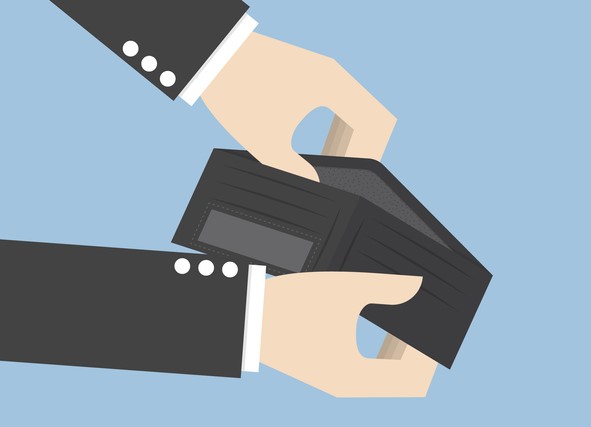What to know about joint debts
What are joint debts? Greg Jenkinson, a debt advisor at the StepChange, explains what joint debts are and what to do if you can’t pay them.

What are joint debts?
Joint debts are debts in which two or more people are liable for repaying the debt.
It’s a common misconception that if two people take out the debt then they only need to pay back 50% each, however this isn’t the case. Legally, both parties are fully liable for the debt. Repayments could be split 50/50, but it’s also possible that one person could pay back 10% and the other 90%, or that one individual pays the full amount of the debt entirely.
If there’s a breakdown in a relationship, for example, then one person could unexpectedly end up paying back the remaining debt themselves, so it's important to keep this in mind if you’re considering a joint loan.
Similar rules can be applied to other forms of debt, like arrears on utility bills. Even if only one person in the household is paying that bill, it’s possible the other occupants in the home are named on the account and are therefore liable for any arrears that may occur.
Another example would be if you were to become a guarantor for someone’s debt. Normally, a guarantor is only expected to make payments if the main account holder falls behind with theirs. However, if the main account holder is unable to clear the arrears or bring the payments up to date, then the creditor will pursue both individuals. This could result in further charges added to the debt, a detriment to both individuals, their credit files, and possibly resulting in court action depending on the type of debt.
How should you deal with joint debts?
In situations where someone may be seeking a way to reduce or remove their debt entirely (such as a debt relief order (DRO), applying for bankruptcy or an individual voluntary arrangement (IVA)), it’s important to note that joint debts, or agreements with a guarantor attached, aren’t immediately erased.
If someone is looking to have their debt erased, and it’s approved, then they’ll no longer be liable for that debt. Unfortunately, anyone else attached to that debt may now be solely liable, and therefore can be asked to make repayments.
As this can be a complicated situation, we’d always recommend consulting a debt advisor to help clarify if there is joint liability for a debt, and what the potential ramifications could be if circumstances change.
Summary
Key takeaways:
- A joint debt is any financial contract you share with someone else, like your partner. This could be a mortgage, loan, or bank account.
- There are no joint credit cards in the UK, which means you cannot have joint credit card debt. The primary cardholder is responsible for repaying all debts, even if they come from an additional authorised cardholder.
- Marriage/civil partnership doesn’t make you responsible for your partner’s debts. Any debts or financial obligations that your partner has in their name will stay in their name only.
- Get free expert debt advice from an organisation like StepChange if you’ve been left with a joint debt you can’t afford. Remember, a problem shared is a problem halved.
About the author
Greg Jenkinson is a debt advisor at StepChange, a charity dedicated to making debt support available for anyone who needs it.
See also
What types of debt can be included in a DRO, an IVA and bankruptcy?
Getting help when you can't pay your gas and electric bills
What happens to a joint bank account when someone dies?
Images
Getty Images
Publication date
13 December 2024
Any opinion expressed in this article is that of the author and the author alone, and does not necessarily represent that of The Gazette.
